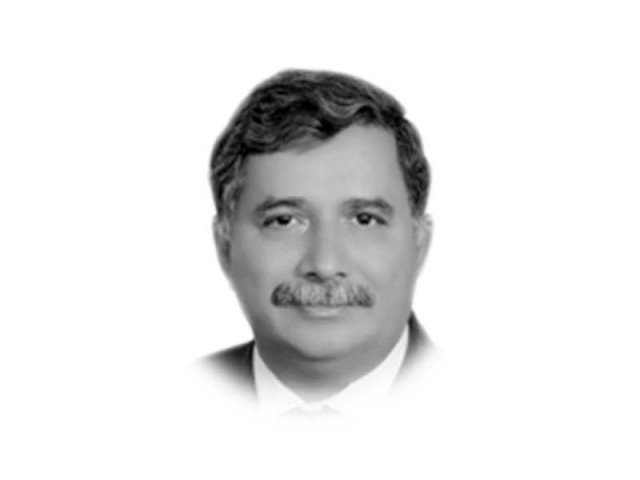Democracy and welfare: an antidote to radicalisation
Radicalisation has emerged in a different form post 9/11 and is considered significant in the ongoing militancy

The writer is a former secretary to the Home and Tribal Affairs Department and a retired IG. He holds a PhD in Political Science. He currently heads a think tank, Good Governance Forum, and can be reached at aashah7@yahoo.com
People such as Plato, Moses, Buddha, Christ, and Muhammad (peace be upon him) stand out in history challenging the moribund belief of the time. Despite being hunted out by hostile forces, most of them with their courage of conviction changed the course of history through challenging the established social orders and creating new ones. If we study history thoroughly, events such as the theory of separation of the Church, curtailment of the divine right of the Crown, Magna Carta, no taxation without representation, slogans of fraternity, equality and freedom of the French Revolution, the American Tea Party and Declaration of Independence, uprising against the Czars, national liberation movements, Copernicus’ and Galileo’s theory that the earth revolves around the sun, Darwin’s theory of evolution, Ibne Rushd’s ideas of rationalism and Gandhi’s ideas of passive resistance and non-violence all appeared to be innovation in clash with the set beliefs of society at the time. They were therefore termed radical and considered anti-state. The laws of the land were mostly used to stifle such voices by trials and convictions but ultimately their ideas triumphed, significantly changing the world.
Radicalisation has emerged in a different form post 9/11 and is considered a significant factor in the ongoing militancy in the world. Given the prevailing volatile security landscape of the world and Pakistan, in particular, it has attracted the focus of many researchers.
As no unanimous view over the definition of terrorism exists, it is difficult to define it. The same is the case with radicalisation. However, recently it has been considered as a precursor to terrorism and is generally interchanged with the notion of terrorism. Scholars such as Stampnitzky, McCauley and Moskalenko consider it as a “development of beliefs, feelings and actions in support of any group or cause in a conflict”.
Most of these definitions have a common denominator that radicalisation is a process. The disagreement is upon where the process leads. In this context, the European Union expert group on radicalisation sees it as “socialisation to extremism which manifest itself in terrorism”. Although many scholars caution not to take radicalisation as a precursor to terrorism since the causal relationship between the two is problematic at best. But the fact of the matter is that over-simplification of the notion is endemic in mainstream debates.
There can be many definitions of the term and the process which existed in all times. Despite having laws with ruthless punishments as we observed throughout history, mighty dynasties and nations fell before the rising tide of radical ideas, as ideas broke no compromise and had no boundaries. In this backdrop, the question boggling the mind is what causes radicalisation and how do we tackle it.
In this context, Marxist philosophy is quite relevant which underlines that the mode of material conditions impacts the general process of social, political and intellectual life. It is not the consciousness of men that determines their existence, but their social existence that determines their consciousness. Another scholar of the contemporary period Dalgaard-Nielsen considers that a radical is understood as a person harbouring a deep-felt desire for fundamental socio-political changes. As such radicalisation is understood as a growing readiness to pursue and support far-reaching change in society that conflict with or pose a direct threat to the existing order. Violent radicalisation is a process in which radical ideas are accompanied by the development of willingness to directly support or engage in violent acts. Moreover, social development sprang from the inherent contradictions within material life and the social superstructure. Based on these it can be assumed that radicalism is the product of the material and social conditions of a given time.
Seen in the context of Pakistan, radicalisation erupted due to multiple factors having different manifestations which can be categorised based on class, ethnicity and religion. However, various studies suggest that the common denominator for radicalisation remained the voice against social, economic and political disparity, and injustice. Underdevelopment, denial of participation social and political life, and lack of cultural identity led to conflict. The grievances of East Pakistan (now Bangladesh) are a case in point. The Baloch nationalism and insurgency is also attributed to the feeling of being left out from the national mainstream narrative, exploitation of resources and denial of cultural identity.
The phenomenon of Talibanisation and other similar eruptions are also the product of social injustices who dub the West as the cause of such ills and injustices. The theories of neocolonialism, once coined by the left, are also now being used by them. The absence of a democratic system of governance in its true sense which provides a mechanism for conflict resolution further provides a breeding ground for radicalisation. Moreover, unfair distribution of income and acute poverty in Pakistan is another factor as majority of the population spends its lives below the poverty line. The West has evolved and developed welfare systems acting as an antidote in response to radicalism, otherwise a socialist revolution would have long occurred in Europe and the UK. Pakistan with its population of over 220 million, of which 65% is the youth, is living under subhuman conditions and must develop democracy and reorient its policies based on development and social welfare in order to stem the tide of radicalisation.
Published in The Express Tribune, June 3rd, 2020.
Like Opinion & Editorial on Facebook, follow @ETOpEd on Twitter to receive all updates on all our daily pieces.















COMMENTS
Comments are moderated and generally will be posted if they are on-topic and not abusive.
For more information, please see our Comments FAQ